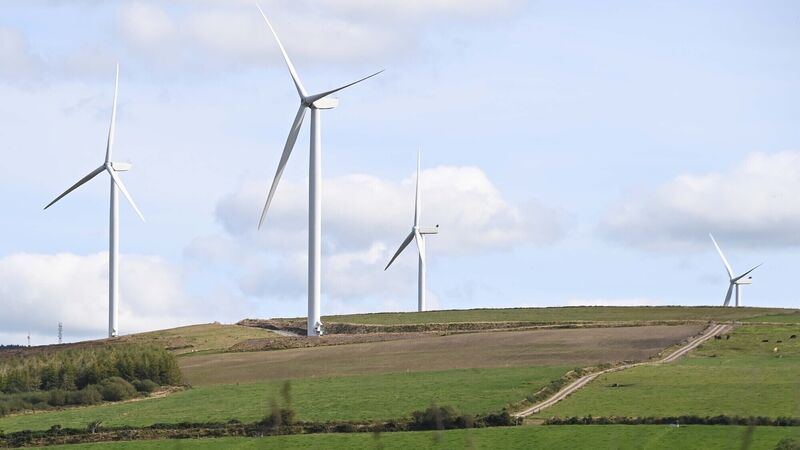Ireland will not meet 2030 emissions reductions or renewable energy targets

Ireland is set to fall short of the target of 43% of energy from renewable sources. Picture: Denis Minihane
The European Commission has dished out a withering assessment to Ireland, saying that it will not meet its 2030 emissions reductions or renewable energy targets.
In an opinion published today, the commission said there is a 31.8% gap between what Ireland must cut in greenhouse gas emissions in relevant sectors by 2030 under EU targets and what it will actually achieve.
CLIMATE & SUSTAINABILITY HUB













